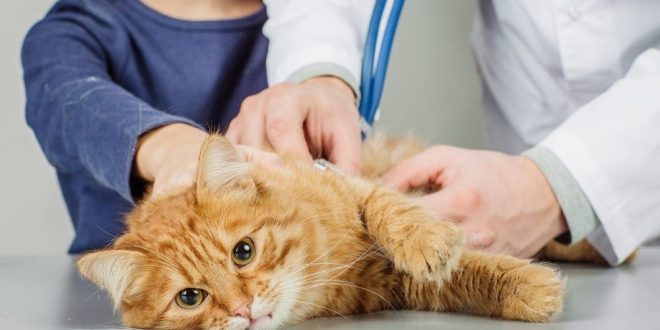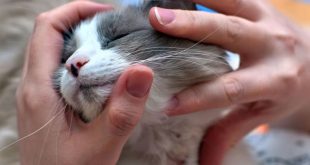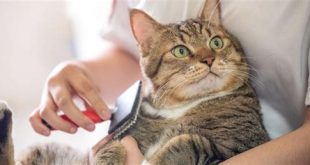Cats are notorious for hiding their illnesses, often masking symptoms until they are quite advanced. As a result, it can be challenging to recognize when your cat is unwell. However, being able to detect early signs of illness in your cat is crucial for ensuring they receive prompt care and treatment. Knowing what to look for can make all the difference in your cat’s health and well-being. Here are some key signs that could indicate your cat is sick.
1.Changes in Appetite or Drinking Habits
One of the first signs of illness in cats is a change in their eating or drinking habits. If your cat suddenly loses interest in food or seems to be eating less, it could be a sign of discomfort or a health issue. On the other hand, excessive eating or drinking, especially if combined with weight loss, may also indicate a problem, such as diabetes or thyroid issues. Keep an eye on how much your cat eats and drinks daily to detect any changes.
2. Lethargy or Increased Sleeping
While cats are known for their love of naps, a sick cat may sleep even more than usual or seem overly lethargic. If your cat is unusually sluggish, avoids playtime, or is hiding in places they normally wouldn’t, it could be a sign of illness. Lethargy can be a symptom of numerous conditions, including infections, kidney disease, or pain.
3. Changes in Behavior
If your cat is acting differently from their usual self, it could be a sign of illness. This might include increased aggression, hiding, or becoming more vocal than normal. For example, a normally friendly cat might suddenly become standoffish or irritable. Pay attention to any significant changes in their behavior, as this can often indicate that they are in pain or discomfort.
4. Vomiting or Diarrhea
Occasional vomiting or diarrhea can happen if a cat has eaten something that disagrees with them, but if it persists, it may indicate a serious problem. Chronic vomiting or diarrhea could be a sign of gastrointestinal issues, infections, parasites, or even more serious conditions like kidney disease or cancer. If your cat is vomiting frequently or has diarrhea for more than a day, it’s essential to contact a vet.
5. Weight Loss or Poor Coat Condition
Significant weight loss, especially if combined with a decrease in appetite, should be addressed immediately. Weight loss can be a sign of a metabolic disorder, gastrointestinal issues, or even cancer. Similarly, a dull, dry, or matted coat may indicate an underlying health issue. Cats generally groom themselves well, so a lack of grooming or a sudden decline in the quality of their fur could be a red flag.
6. Respiratory Changes
Listen for any changes in your cat’s breathing or coughing. If your cat begins to cough, wheeze, or has difficulty breathing, it could be a sign of respiratory infections, asthma, or other lung or heart issues. Labored breathing or wheezing requires immediate attention from a veterinarian. A runny nose or eyes could also signal an upper respiratory infection.
7. Difficulty Urinating or Changes in Litter Box Habits
Cats who have trouble urinating, or who urinate outside their litter box, could be experiencing urinary tract problems, including infections, bladder stones, or even more severe conditions like kidney disease or urinary blockages. If your cat is straining to urinate, urinating excessively, or showing signs of discomfort when using the litter box, seek veterinary care immediately, as urinary blockages can be life-threatening.
8. Unusual Odors
If your cat suddenly develops a bad breath odor or a foul-smelling discharge from the mouth, ears, or eyes, it could indicate a dental issue, infection, or organ problem. Halitosis (bad breath) in cats is often a sign of dental disease, while unusual odors from their ears may indicate an ear infection or mites.
9. Swelling or Lumps
Lumps or swelling under your cat’s skin could indicate an infection, an abscess, or even cancer. If you feel a lump or bump on your cat’s body, especially if it’s growing or painful, it’s important to get them evaluated by a vet. Swelling, particularly in the limbs or abdomen, could also point to an internal problem that needs attention.
10. Excessive Drooling or Foaming at the Mouth
Excessive drooling or foaming at the mouth can be a sign of oral health problems, poisoning, or nausea. If your cat is drooling more than usual or shows signs of foaming at the mouth, it’s a good idea to contact a vet for a thorough examination.
Conclusion
Cats are experts at hiding pain and discomfort, so recognizing the signs of illness early is vital. If you notice any of these symptoms or if your cat’s behavior has drastically changed, don’t wait to seek professional veterinary help. Prompt intervention can make all the difference in your cat’s recovery and overall health. Always trust your instincts—if something doesn’t seem right with your cat, it’s better to be cautious and have them checked by a vet.
 PAWS AND WHISKERS PET CARE
PAWS AND WHISKERS PET CARE


